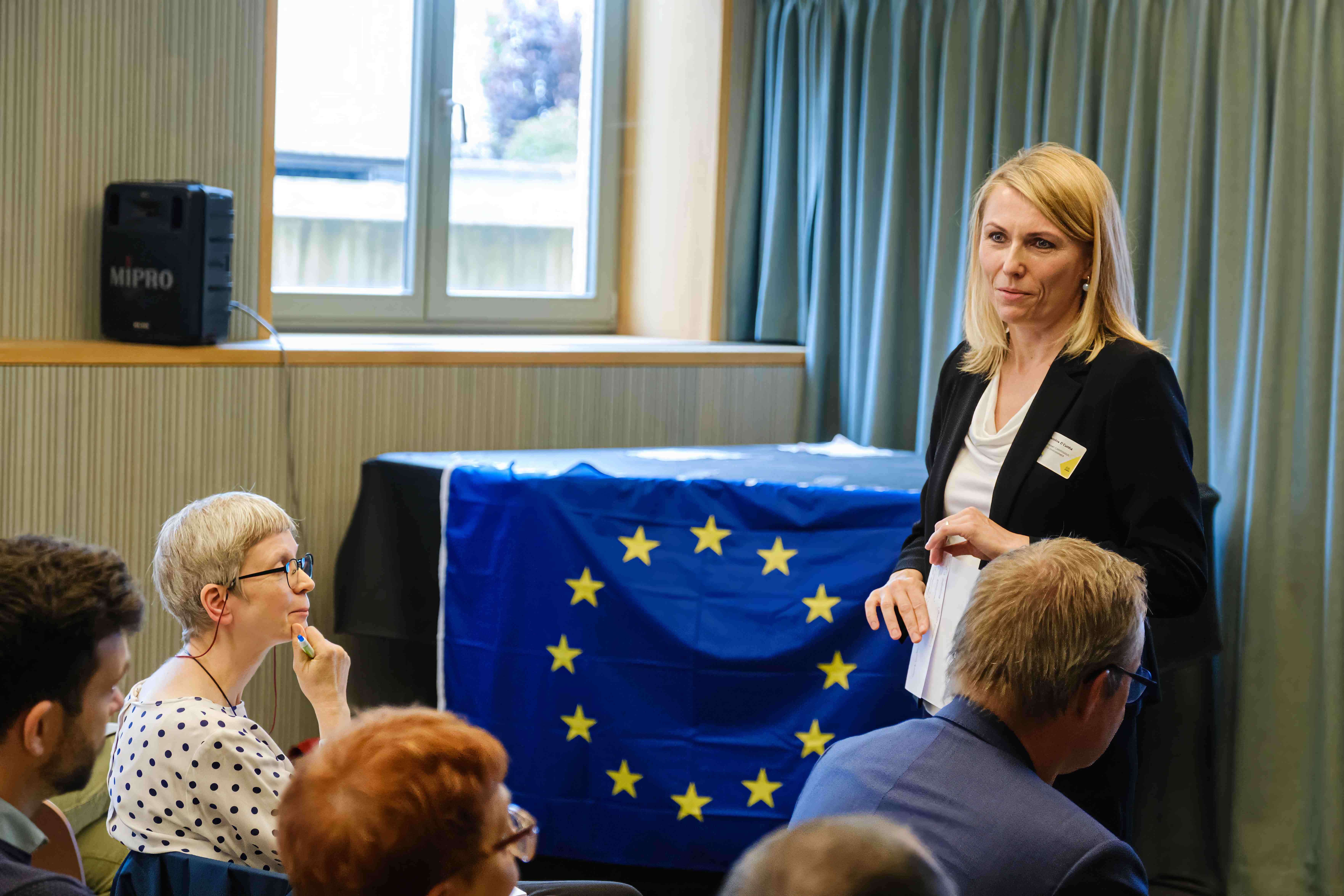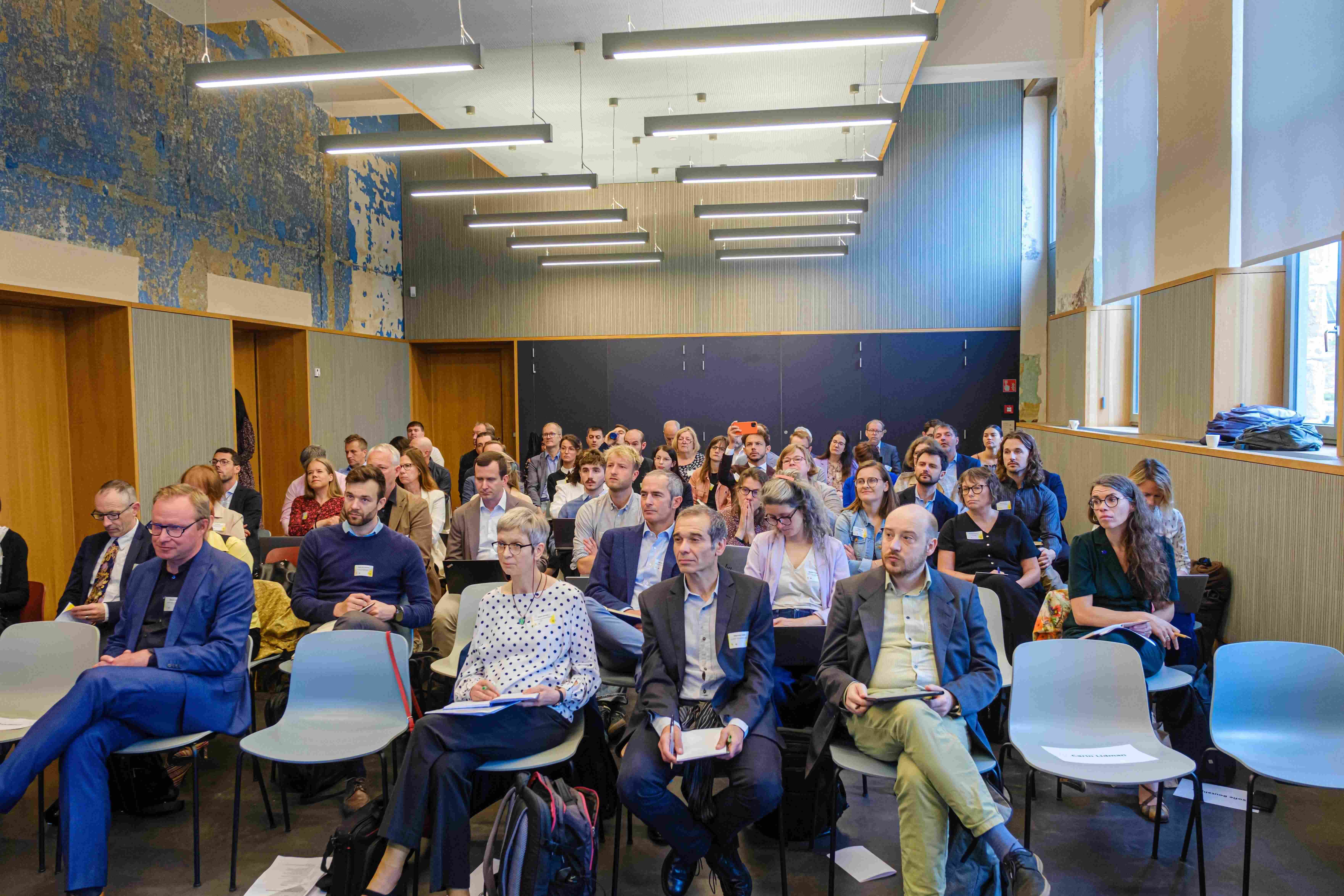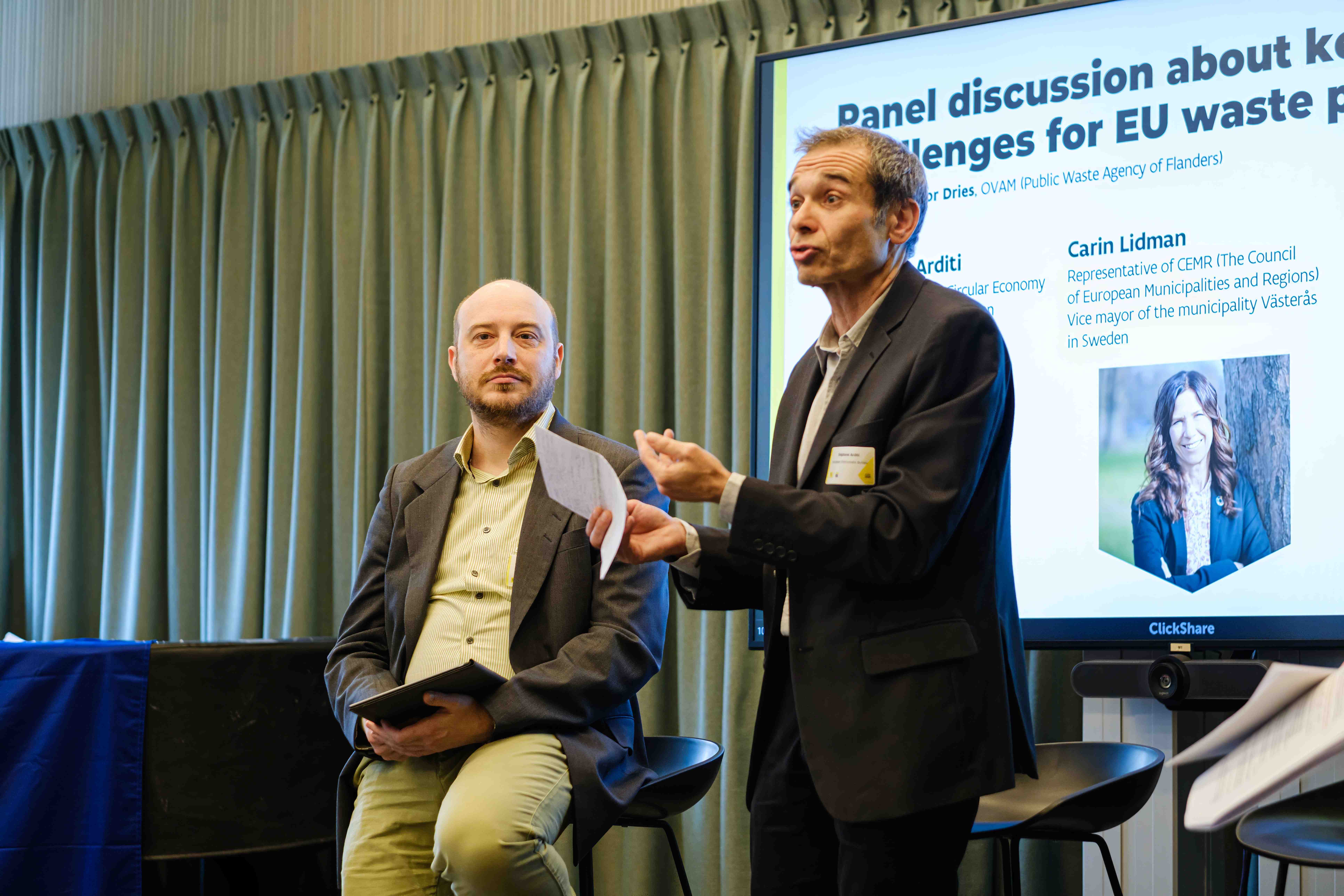No place for waste: OVAM organised a workshop on the future of European waste policy as part of the Belgian Presidency of the Council of the European Union and calls for more focus on prevention
Under the Belgian Presidency of the Council of the European Union, The Public Waste Agency of Flanders (OVAM) organised a workshop on the future of the EU Waste Framework Directive, cornerstone of the EU’s waste policy. In an ever changing world, the EU Waste Framework is in need of being further strengthened, so as to contribute managing resources more sustainably, lowering the material footprint of our consumption and preventing as much as possible that waste is generated. Responsible for waste policy in Flanders since 1981, OVAM continues to be a driving force behind EU agendasetting regarding waste policy.
The workshop welcomed participants from the European Commission, the European Parliament, the European Environment Agency, EU Member States and relevant EU sector federations on the future of the EU Waste Framework Directive.
Sustainable management of raw materials
The workshop started with a plenary session with welcoming words from Bart Somers, mayor of the hosting City Mechelen and from Zuhal Demir, minister of Justice and Enforcement, Environment, Energy and Tourism of Flanders. In his keynote speech, Werner Annaert, CEO of OVAM highlighted OVAM’s long standing experience in waste policies, stressed the importance of EU waste policy with the Waste Framework Directive as its cornerstone and reflected on the challenges that lie ahead and merit a holistic approach. Karolina D’Cunha from DG Environment of the European Commission looked back to the last 5 years accomplishments with regards to waste policy and circular economy. She also reflected upon opportunities to further improve the implementation of the Waste Framework Directive. Almut Reichel from the European Environment Agency stressed that EEA studies and other recent analyses point to the need to reduce the materials we feed the economy with. Less resource use should become a priority.
Multidisciplinary approach
During a panel discussion, Stéphane Arditi from the European Environmental Bureau, Andreas Brieger from SMEUnited and Carin Lidman from the Council of European Municipalities and Regions brought the insights from civil society, business and local governments regarding the challenges and opportunities to further strengthen the Waste Framework Directive and EU policies on waste, sustainable management of resources and circularity. Sustainable choices should become the most logical, convenient and affordable choices for both citizens and businesses. Making repair affordable and scaling up circular business models so that they are competitive were two concrete solutions put forward. The combination of more harmonisation at the European level to give the right market signals while at the same time cooperation between the local level and small and medium-sized local businesses to allow consumers to access circular solutions was also highlighted.
In the afternoon, participants addressed the following topics in six breakout sessions: waste prevention – the waste hierarchy – waste/non-waste status/biowaste collection/substances of concern in material loops – incineration in a circular economy.
The main findings of the workshop have been shared with the European Commission to inspire future action.
Read the summary report.
The workshop welcomed participants from the European Commission, the European Parliament, the European Environment Agency, EU Member States and relevant EU sector federations on the future of the EU Waste Framework Directive.
Sustainable management of raw materials
The workshop started with a plenary session with welcoming words from Bart Somers, mayor of the hosting City Mechelen and from Zuhal Demir, minister of Justice and Enforcement, Environment, Energy and Tourism of Flanders. In his keynote speech, Werner Annaert, CEO of OVAM highlighted OVAM’s long standing experience in waste policies, stressed the importance of EU waste policy with the Waste Framework Directive as its cornerstone and reflected on the challenges that lie ahead and merit a holistic approach. Karolina D’Cunha from DG Environment of the European Commission looked back to the last 5 years accomplishments with regards to waste policy and circular economy. She also reflected upon opportunities to further improve the implementation of the Waste Framework Directive. Almut Reichel from the European Environment Agency stressed that EEA studies and other recent analyses point to the need to reduce the materials we feed the economy with. Less resource use should become a priority.
Multidisciplinary approach
During a panel discussion, Stéphane Arditi from the European Environmental Bureau, Andreas Brieger from SMEUnited and Carin Lidman from the Council of European Municipalities and Regions brought the insights from civil society, business and local governments regarding the challenges and opportunities to further strengthen the Waste Framework Directive and EU policies on waste, sustainable management of resources and circularity. Sustainable choices should become the most logical, convenient and affordable choices for both citizens and businesses. Making repair affordable and scaling up circular business models so that they are competitive were two concrete solutions put forward. The combination of more harmonisation at the European level to give the right market signals while at the same time cooperation between the local level and small and medium-sized local businesses to allow consumers to access circular solutions was also highlighted.
In the afternoon, participants addressed the following topics in six breakout sessions: waste prevention – the waste hierarchy – waste/non-waste status/biowaste collection/substances of concern in material loops – incineration in a circular economy.
The main findings of the workshop have been shared with the European Commission to inspire future action.
Read the summary report.



Check the summary report and the presentations used during the event
Downloads
Report A Futureproof WFD
Werner Annaert - CEO OVAM - WFD workshop 14 June 2024 - Mechelen
Karolina D'Cunha - DG ENV European Commission - WFD workshop 14 June 2024 - Mechelen
Almut Reichel - European Environment Agency - WFD workshop 14 June 2024 - Mechelen
Waste hierarchy - in need of revival - Breakout session - WFD workshop 14 June 2024 - Mechelen
Substances of concern in material loops - Breakout session - WFD workshop 14 June 2024 - Mechelen
Ive Vanderreydt - VITO - WFD workshop 14 June 2024 - Mechelen
Ella Stengler - CEWEP - WFD workshop 14 June 2024 - Mechelen
Biowaste collection - learning from experiences - Breakout session - WFD workshop 14 June 2024 - Mechelen
What place for waste incineration in a circular economy - ZWE - WFD workshop 14 June 2024 - Mechelen
Waste non-waste - how to address challenges - Breakout session - WFD workshop 14 June 2024 - Mechelen
Review the preparatory documents
Downloads
Breakout session - What place for waste incineration in a circular economy - 15.15-16.30
Breakout session - Waste-non-waste - how to address challenges - 13.30-14.45
Breakout session - Waste hierarchy - in need of revival - 13.30-14.45
Breakout session - Substances of concern in material loops - towards safe recycling - 15.15-16.30
Breakout session - Prevention - making tangible what is not there - 13.30-14.45
Breakout session - Bio-waste collection - learning from experiences - 15.15-16.30
WFD workshop program 13-14 June
Contact
- For general questions: sbo-internationaalbeheer@ovam.be
- Questions about the agenda can be addressed to Sofie Bouteligier: sofie.bouteligier@ovam.be and Elizabeth Cazaerck: Elizabeth.cazaerck@ovam.be
